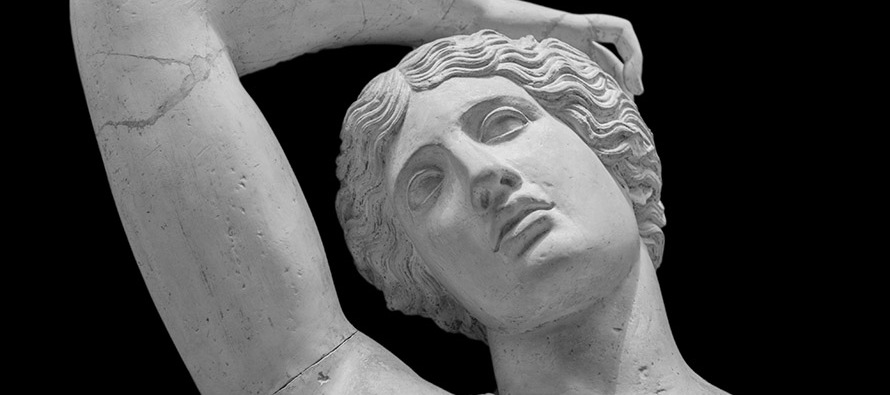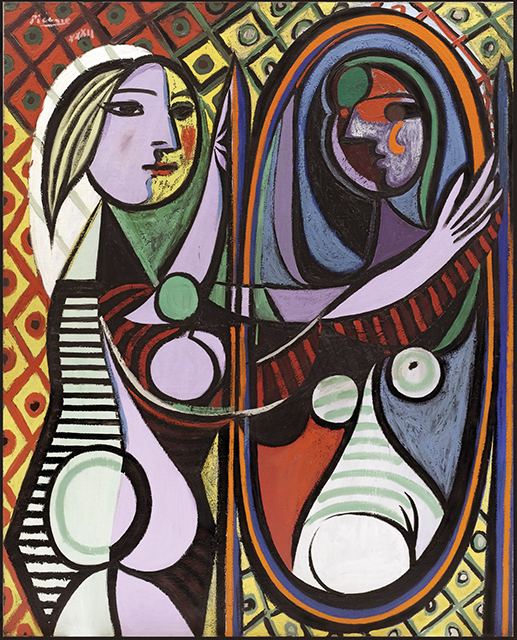Embody your decisions

All experience, and hence, all information for vocation discernment and other types of decision-making, must come to us first through our bodies. (Photo: 123RF)
THE BODY is a powerful carrier of wisdom. Everything we have experienced lives on in the body. Indeed, the body is life as we know it. Our senses registering the world, our muscles carrying us, the digestive system breaking food into nourishment—this is the body at work. Our activities, people living together, tending to children, working, falling ill, exercising—these are our embodied selves.
All experience, and hence, all information for vocation discernment and other types of decision-making, must come to us first through our bodies. Sometimes sensations can be subtle and take practice to notice and learn to interpret. Others, like the headache I typically get when my computer breaks down, can be glaringly obvious. Still, unless their revelatory power is taken seriously, the wisdom they offer goes unclaimed.
THROUGH THE BODY
1. Prayerfully renew your desire to follow God’s call.
2. Clear a space inside you. Allow yourself to become aware of your body, all its parts and organs.
3. While attentive to your body and its responses, present your discernment question in detail. Pay attention to everything that happens in your body as you do.
4. What do you sense in your body with respect to your question? What is the quality of the felt sense? Write it out in detail.
5. Carry on a dialogue with yourself about your discernment question. If your body sense shifts, follow where it takes you.
6. Record any new awareness about a potential decision that comes through your body.
7. Return to your desire to follow God’s call. Place your new awareness before God and notice what happens. Record this outcome too.
8. Add other forms of discernment to the information provided by your body. All these indicators together suggest the direction in which you are being called.
Psychologist Eugene Gendlin points out that what he calls “felt sense” is different from an emotion, which we could more readily recognize. Emotions also reside in the body, but the felt sense is more basic than emotions. We usually know when we are happy, sad, angry, or wistful, for example, but a felt sense, because it lacks such an emotional resonance, may elude detection at first. It might register as an ache, a twitch, a tension, or even more vague lightness or heaviness. In noting a negative body reaction, people may feel a knot in the stomach, a tightness in the chest, a catch in the throat, or simply a lack of energy. More positive sensations might be buoyancy, energy, freedom from twitches, knots, or pressure. This subtlety and lack of explicit language makes reading the body a challenge.
Consequently, learning to understand the language of our bodies can take some practice. I encourage you to notice and interpret the wisdom your body holds about how God is calling you. The practice in the accompanying box is one way that you can begin this listening process.
Scripture gets physical
Scripture is filled with bodies and bodiliness. Recall how Genesis speaks poetically about the sweep of creation. God’s creative “Let there be. . .” (Gen. 1) brings forth the bodies of an immense variety of living things, including humanity. Later, the story of Moses leading the Israelites out of slavery is remarkably physical, from the parting of the Red Sea to God sustaining the Israelites with manna and quail. The Song of Solomon is an unabashed love poem that begins with “Let him kiss me with the kisses of his mouth!”
In the gospels, we encounter the mystery that God became fully present in a particular human body. On the night before he died, Jesus tended to the bodies of his closest friends, washing their feet, sharing the Last Supper with them. After he rises from the dead, Jesus eats with his disciples and instructs Thomas to touch his hands, feet, and side. Saint Paul uses the body as a metaphor for the unity of the church, but it is more than a metaphor, as he also instructs Christians on a number of bodily concerns, from sexual fidelity to caring for the naked or hungry.
Bodily experience is inherently ambiguous. We live in the tension between being a body and having a body, freedom and constraint, sacredness and vulnerability. Yet our whole self includes our body, and in order to keep moving toward wholeness, the body must not be ignored nor denigrated or overindulged.

Friend or foe?
You might concede that bodies in general may be holy but still not be comfortable with your own body as a source of God’s revelation. It’s pretty easy to see bodies as a general category as good—after all, God created them—even as your particular body, tied intimately to your sense of self, may not appear good or even acceptable. Perhaps your body has been hurt or abused; if this is your history, it may not be obvious how your body could help in your discernment. You may want a trusted person or spiritual director to walk with you as you begin to explore the positive wisdom your body may offer.
God loves each of us for who we are and wants the best for us. Our bodies keep us grounded to this place and these relationships where God is already at work, and so provide an essential starting place for other forms of discernment. Vocational discernment—who I am called to be and how I am called to live out this call—fruitfully begins here.
Putting it into practice
Some find the exercise in the accompanying box easy to do; others find it difficult, including those who are skeptical. Even those who are resistant often tell me things like: “It seemed so hokey, but I tried ‘listening’ to my body, and it worked!” Or: “I had no idea my body would register an opinion at all, so I was surprised when there was a definite shift within myself as I posed different possibilities.” Others find their bodies essentially leaning away from a possibility that seems so right in their brains. There is no correct response to the exercise. Just listen to your body and learn by experience how to interpret its language.
For Christian decision-making, it is important to control the speed and intensity of bodily sensations in order to use them fruitfully. If you find any part of this exercise makes you uncomfortable, stop. Or wait and pick up the exercise in a place and with people with whom you feel safe.
Related article: VocationNetwork.org, “Listen closely.”
Tags
Related
- Questions Catholics Ask: What are the different forms of prayer?
- What does “success” look like in discernment?
- How to find a guide for your vocation adventure
- Beware of bots and bad actors as you engage online
- Call stories to help you discern
- Five reasons to pray the Liturgy of the Hours
- Tune into your prayer life
- Your mission awaits you! Pope Francis' message to young people
- My portable prayer life
- Unravel the mystery of your call Read More
Most Viewed
- Find your spirituality type quiz
- Questions and answers about religious vocations
- Celibacy quiz: Could I be a nun? Could I be a brother? Could I be a priest?
- Resources for older discerners or those with physical and developmental differences
- About Vocation Network and VISION Guide


